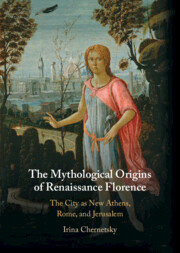This article examines a corpus of over forty Italian civic histories produced from the mid-thirteenth to mid-fourteenth century, when the wealth of many of the peninsula's inhabitants increased significantly. Evidence from this corpus demonstrates that attitudes about wealth in historical writing changed over time and argues for a shift from a more static to a more dynamic representation of material goods in these texts. The novel mechanisms for accruing wealth that developed in the Italian urban context were important factors in the historigraphic turn, but as the period wore one, changes in the types of people writing history also contributed to modified presentations of wealth in their writings. Whether describing the display of luxury or its regulation, civic improvements or the destruction of a town's buildings by warring factions, taxation in a city or the corruption of its offiicials, views towards material goods in medieval Italian urban histories were neither wholly positive nor negative. Rather, the historiographic value of material goods was complex. The frequency with which wealth was a topic of discussion in civic histories highlights how the peninsula's inhabitants were coming to terms with the influx of wealth and the material goods they could acquire as members of their urban communities.


